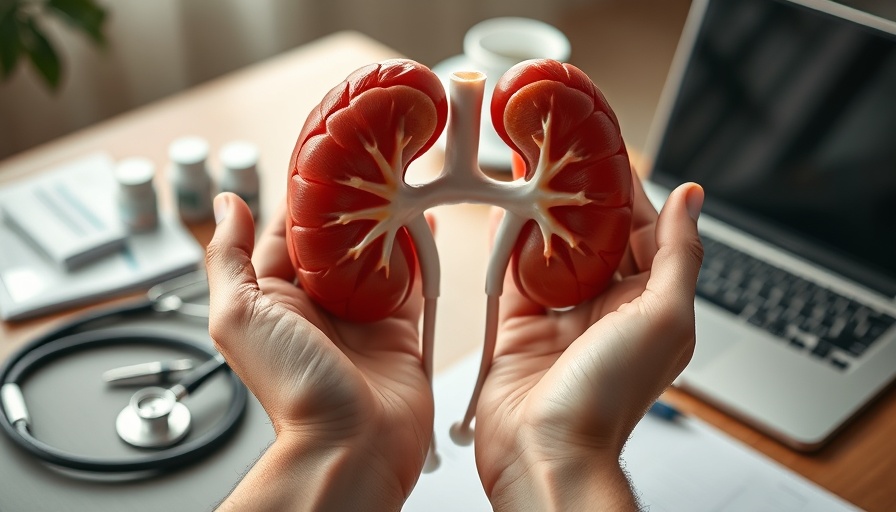
Understanding Kidney Function and Cardiovascular Health
Recent research has revealed that declining kidney function is closely linked to an increased risk of cardiovascular death, particularly among elderly Asian populations. This finding underscores the importance of monitoring kidney health as a potential precursor to greater cardiovascular threats.
The Connection Between Kidney Health and Heart Disease
Kidney function plays a crucial role in overall health, and its decline can indicate other underlying health issues. The kidneys filter waste from the blood, regulate blood pressure, and balance electrolytes. When they fail to function properly, it can lead to various complications, including heart disease. The study highlights that older adults, especially those of Asian descent, face heightened mortality risks due to this interplay.
Historical Context: Health Disparities in Aging Populations
This study adds to a growing body of evidence indicating that aging populations, particularly within specific ethnic groups, are susceptible to a variety of health issues that often intersect. Historical health disparities faced by Asian seniors, due to factors like less access to healthcare, nutritional variances, and socioeconomic conditions, create a backdrop for these findings. Understanding these factors is essential for developing targeted health interventions.
Cross-Cultural Health Impacts: A Global Perspective
The implications of this research extend beyond Asian communities; they resonate globally as a reminder that cardiovascular health cannot be divorced from other bodily functions like kidney health. Various studies across multiple demographics indicate a similar pattern of increased cardiovascular risk linked to decreased kidney function, suggesting a universal need for healthcare systems to adopt holistic approaches to patient wellness.
Future Trends: Emphasizing Preventive Healthcare
As healthcare increasingly pivots towards prevention, understanding the kidney-heart connection could lead to novel interventions aimed at slowing kidney decline and consequently reducing cardiovascular death risks among high-risk groups. Future public health initiatives may need to focus on early kidney function screening, especially for elderly populations.
Emotional and Human Interest Insights
The impact of declining kidney function on life expectancy is deeply personal. Families face the emotional burden of loved ones suffering from chronic diseases, emphasizing the importance of preventive health measures. Raising awareness about kidney health can empower individuals to take actionable steps toward better health.
Decisions You Can Make With This Information
Individuals and families can benefit significantly by prioritizing kidney health, engaging in regular health check-ups, monitoring blood pressure, and adopting heart-healthy diets rich in fruits, vegetables, and whole grains. Just as importantly, discussions with healthcare professionals can lead to personal plans for maintaining kidney health.
Statistical Insights: What the Numbers Reveal
According to recent health statistics, approximately 38% of older adults with chronic kidney disease see their quality of life drastically affected due to cardiovascular complications. These startling figures highlight the need for prompt and informed interventions that can address both kidney and heart health together.
Conclusion: Why Kidney Health Matters
The new findings linking kidney function to cardiovascular risks serve as a crucial reminder of the intricate connections within our body's systems. As we age, vigilance about our kidney and heart health should take precedence, paving the way for healthier lives and longer lifespans.
 Add Row
Add Row  Add
Add 




Write A Comment